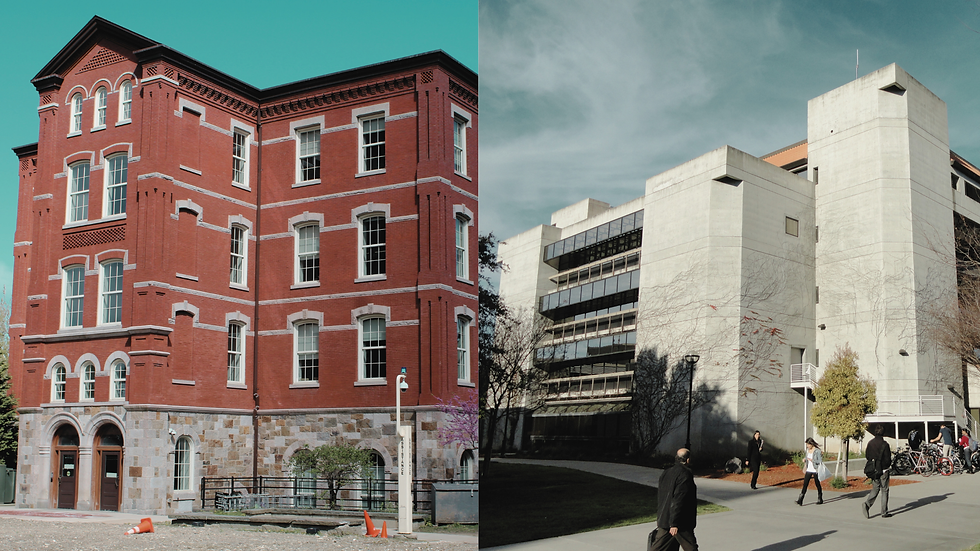Protesting Students in Serbia Challenge Government Corruption and Authoritarianism
- Endangered Scholars Worldwide
- Jan 27, 2025
- 3 min read
Updated: Mar 27, 2025

Thousands of students marching in Belgrade, demanding accountability over the fatal collapse in Novi Sad. Photo Credit: Oliver Bunic | AFP
On November 1, 2024, a canopy collapsed above the entrance of the recently renovated railway station in Novi Sad, Serbia’s second-largest city, killing 15 people, including two children. Since the tragedy, students across the country have been staging daily protests, holding the government accountable for what they see as negligence and corruption.
The collapse has become a flashpoint for broader discontent with Serbia’s authoritarian leadership under President Aleksandar Vučić, reflecting rising public demands for transparency and accountability. Protesters in Novi Sad, Belgrade, and other cities blame the tragedy on pervasive corruption, which they argue led to substandard renovation work on the station. The renovation was part of a larger infrastructure deal involving Chinese state companies, which have been central to several controversial projects in the Balkans.
Students have been rallying across the country, holding daily 15-minute silent vigils to honor the victims of the disaster. They are demanding the publication of documents related to the station’s renovation and the prosecution of those responsible. Classes at Serbia’s universities have been suspended for weeks since the protests began. The ruling Serbian Progressive Party has faced growing criticism in recent years for undermining political rights and civil liberties. It has been accused of pressuring independent media, stifling political opposition, and weakening civil society organizations.
According to Freedom House’s 2024 report on Serbia, academic freedom has largely been upheld; however, recent practices and legal changes have raised concerns about political influence. For instance, the Law on Higher Education, which has undergone recent amendments, has been a focal point in discussions about the autonomy of academic institutions and the potential for governmental interference. One such amendment allows foreign universities to operate under agreements and work permits issued by the Ministry of Education without undergoing the accreditation process. This move was criticized by the academic community in Serbia as the decision was made without any public debate, and is believed to jeopardize the quality of education in the country.
On January 16, 2025, tensions escalated when a driver rammed his car into a crowd of protesters in Belgrade, seriously injuring a young woman. Several similar incidents have since been reported, further heightening fears for protesters’ safety.
Student protesters have also reported facing pressure from Serbian state security. Pro-government media outlets have launched attacks on the protesters, including publishing personal information—information that protesters argue could only have been accessed through Serbia’s secret service, the BIA. President Vučić has added to the hostility, publicly accusing the student-led protests of being funded by foreign powers, particularly the West, to overthrow him by force. In another statement, he dismissed the protests, claiming he does not care about them and accusing his political opponents of manipulating students for their own gain.
The European Students’ Union in a statement released on 23 January showed support for the student protesters and those striking in solidarity. The Union is calling for institutions to monitor and investigate all breaches of academic freedom and acts of violence and political persecution against protesters, including students, and to ensure their safety on and off campus; to uphold student protestors’ universal rights to peaceful assembly, protest, and freedom of expression; to fostering an open and respectful dialogue to address the issues at hand; and to respect and support the democratic aspirations of Serbian youth, including their esteem of transparency and accountability regarding of society.
Despite attacks on the protesters and limited government concessions, the near daily protests have grown and spread, affecting more than 100 cities and towns and drawing in increasing support from members of the judiciary, teachers, private businesses and the general public. On 27 January students staged a daylong blockade of a major traffic intersection in Belgrade with the support of farmers, stepping up pressure on President Vučić. The protest leaders are also demanding an end to prosecutions against demonstrators, the arrest and prosecution of those involved in attacks on the protesters, and increased funding for education.
The recent events in Serbia reflect a broader global trend of crackdowns on dissent, civil liberties, and academic freedom. Endangered Scholars Worldwide (ESW) is deeply concerned about the ongoing restrictions on academic freedom in Serbia. ESW joins the European Students’ Union to call upon the Serbian government and President Aleksandar Vučić to immediately cease efforts to intimidate and harass protesters, members of all university members, including students and faculty, and to foster an environment that allows for the free pursuit of academic activities.




